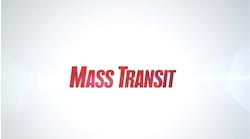FTA announces recipients of more than $1.6 billion in funding for clean transit
A total of $1.66 billion was awarded by the Federal Transit Administration (FTA) to 48 states and territories, supporting 150 bus fleets and facilities throughout the United States to invest in cleaner transportation, reduce pollution and meet the Biden-Harris Administration’s goal of net zero emissions by 2050.
“With today's awards, we’re helping communities across America – in cities, suburbs and rural areas alike – purchase more than 1,800 new buses, and most of them are zero-emission,” said U.S. Transportation Secretary Pete Buttigieg. “Funded through President [Joe] Biden’s Bipartisan Infrastructure Law, this announcement means more good jobs for people across the country, cleaner air in our communities and more affordable and reliable options to help people get to where they need to go.”
The funding was provided through the FTA’s Buses and Bus Facilities and Low- and No-Emission (Low-No) Vehicle programs and will support the purchase of more than 1,800 bus vehicles in urban, suburban, rural and tribal communities. Of those vehicles, more than 1,100 qualify as zero emission, nearly doubling the number of zero-emission buses currently on the road. Additionally, for the first time, five percent of this year’s Low-No funding will be used to train transit workers on how to maintain and operate new clean bus technology.
“The grants we’re announcing include 74 projects that provide support to train workers in operating and maintaining buses powered with this new technology,” said FTA Administrator Nuria Fernandez during a press call announcing the grant recipients. “For example, Omnitrans will receive funding to buy as many as four new fuel cell battery electric buses. They're going to build the hydrogen refueling station and they're going to launch a comprehensive workforce development program, including training and a new apprenticeship program in partnership with San Bernadino Valley College.”
Grants range from $150,000 to $160 million. Other examples of projects include:
- The Los Angeles County Metropolitan Transportation Authority will receive $104.1 million to buy approximately 160 battery-electric buses to replace older compressed natural gas buses, as well as charging equipment. The project will improve safety, air quality and reliability for residents and visitors to the Los Angeles metropolitan area.
- The Memphis Area Transit Authority will receive $54 million to build an operations and maintenance facility. The facility, which will be in Memphis, will accommodate more than 300 vehicles and improve safety and ensure a good state of repair for the bus fleet.
- The Colorado Department of Transportation will receive $34.7 million on behalf of Summit Stage, a rural transit agency that provides bus service in Summit, Park and Lake Counties in northeast Colorado, to build a bus depot for electrical charging and storage. It will replace Summit Stage’s aging facility and prepare for a 100-percent electric fleet in the future.
For Fiscal Year 2022, approximately $1.17 billion was available for grants under FTA’s Low-No program and approximately $550 million was available for grants under FTA’s Buses and Bus Facilities program. The Bipartisan Infrastructure Law authorized more than $5.5 billion over five years in Low-No formula competitive grant funding, resulting in six times more funding than the previous five years, and authorized nearly $2 billion over five years for the Buses and Bus Facilities program.
“I want to call out the transit agencies across the country as we award these grants. We are so pleased at their commitment to protect the environment and help President Biden’s goal of net zero emissions in American by 2050,” Administrator Ferandez concluded.
In response to the Notice of Funding Opportunity, FTA says it received 530 eligible project proposals totaling approximately $7.72 billion in requests. A full list of recipients is available on FTA’s website.

Megan Perrero | Editor in Chief
Megan Perrero is a national award-winning B2B journalist and lover of all things transit. Currently, she is the Editor in Chief of Mass Transit magazine, where she develops and leads a multi-channel editorial strategy while reporting on the North American public transit industry.
Prior to her position with Mass Transit, Perrero was the senior communications and external relations specialist for the Shared-Use Mobility Center, where she was responsible for helping develop internal/external communications, plan the National Shared Mobility Summit and manage brand strategy and marketing campaigns.
Perrero serves as the board secretary for Latinos In Transit and is a member of the American Public Transportation Association Marketing and Communications Committee. She holds a bachelor’s degree in multimedia journalism with a concentration in magazine writing and a minor in public relations from Columbia College Chicago.



